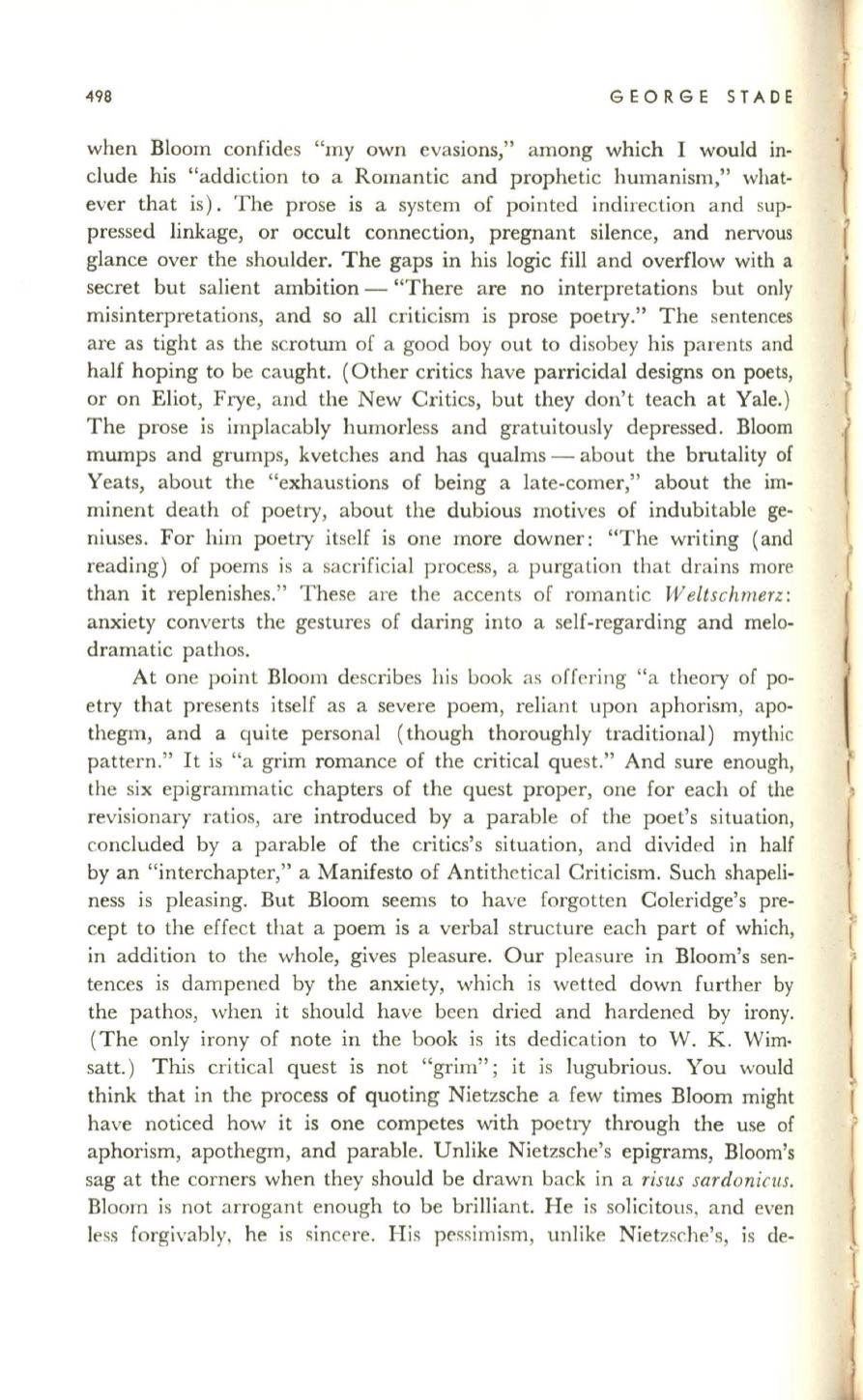
498
GEORGE STADE
when Bloom confides "my own evasions," among which I would in–
clude his "addiction to a Romantic and prophetic humanism," what–
ever that is). The prose is a system of pointed indirection and sup–
pressed linkage, or occult connection, pregnant silence, and nervous
glance over the shoulder. The gaps in his logic fill and overflow with a
secret but salient ambition - "There are no interpretations but only
misinterpretations, and so all criticism is prose poetry." The sentences
are as tight as the scrotum of a good boy out to disobey his paren ts and
half hoping to be caught. (Other critics have parricidal designs on poets,
or on Eliot, Frye, and the New Critics, but they don't teach at Yale.)
The prose is implacably humorless and gratuitously depressed. Bloom
mumps and grumps, kvetches and has qualms - about the brutality of
Yeats, about the "exhaustions of being a late-comer," about the im–
minent death of poetry, about the dubious motives of indubitable ge–
niuses. For him poetry itself is one more downer: "The wri ting (and
reading) of poems is a sacrificial process, a purgation that drains more
than it replenishes." These are the accents of romantic
W eltschmerz:
anxiety converts the gestures of daring into a self-regarding and melo–
dramatic pathos.
At one point Bloom describes his book as offering "a theory of po–
etry that presents itself as a severe poem, reliant upon aphorism, apo–
thegm, and a quite personal (though thoroughly traditional) mythic
pattern."
It
is "a grim romance of the critical quest." And sure enough,
the six epigrammatic chapters of the quest proper, one for each of the
revisionary ratios, are introduced by a parable of the poet's situation,
concluded by a parable of the critics's situation, and divided in half
by an "interchapter," a Manifesto of Antithetical Criticism. Such shapeli–
ness is pleasing. But Bloom seems to have forgotten Coleridge's pre–
cept to the effect that a poem is a verbal structure each part of which,
in addition to the whole, gives pleasure. Our pleasure in Bloom's sen–
tences is dampened by the anxiety, which is wetted down further by
the pathos, when it should have been dried and hardened by irony.
(The only irony of note in the book is its dedication to W. K. Wim·
satt. ) This critical quest is not "grim"; it is lugubrious. You would
think that in the process of quoting Nietzsche a few times Bloom might
have noticed how it is one competes with poetry through the use of
aphorism, apothegm, and parable. Unlike Nietzsche's epigrams, Bloom's
sag at the corners when they should be drawn back in a
risus sardonicus.
Bloom is not arrogant enough to be brilliant. He is solicitous, and even
less forgivably, he is sincere. His pessimism, unlike Nietzsche's, is de-
r
.
!
r
I
i
~
I
l
,
!
I


